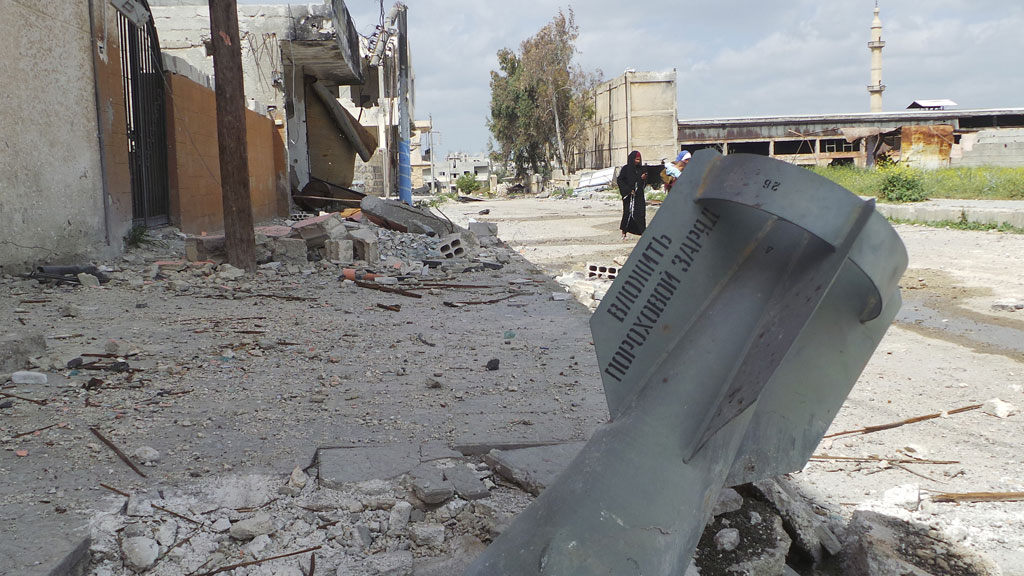British mother trapped in Syria’s civil war
 Alex Thomson
Chief Correspondent
Alex Thomson
Chief Correspondent
A British mother is trapped alongside her children in Syria as her estranged husband won’t give his permission for her to leave the country.

Jannah Reid has no need for an alarm clock to wake her three children for school. The daily dawn chorus in her tower block apartment in downtown Damascus is the thump of rockets being fired from Syrian Army artillery batteries in the hills surrounding the Syrian capital or the roar of government Mig fighter jets overhead.
Dundee-born Jannah is trapped in a war zone. The 51-year-old English teacher can’t leave because she needs the written permission of her estranged Syrian husband to take her two younger sons, Ridwaan, 11, and Hashem, ten, out of the country.
He is currently living in exile in Saudi Arabia and doesn’t reply to her letters.
Read Alex Thomson's blog: Family life in Damascus goes on for a mother from Dundee
“We can certrainly hear what’s going on around us,” she says. “Instead of the birds waking me up in the morning it’s the rockets fired every morning from the hill behind the flats. The only birds we hear are Migs.”
Dressed in the close, white hijab headscarf and the long gown worn by Syrian women, Jannah gives a cheery laugh. But as we speak, another salvo of rockets fires out from the hiltop.
70,000 killed in fighting
The noise appears not to faze her children – her oldest son, from her first marriage is 19-year-old Talal. But Jannah is clearly rattled.
The UN says at least 70,000 people have been killed in the fighting in Syria since protests against President Bashar al-Assad began two years ago.
In the last few days, 15 students have been killed at the university after a mortar strike and ten shells have exploded within a half-mile radius of her office during heavy fighting in the capital.
She has lost two close friends to the conflict, one to a bomb and one to a sniper bullet and at least a dozen of her former students have been killed.
“I fret and cry daily about money and about our safety,” she admits. “Every time a child is late home, I start to think they have been killed by a bomb or a sniper – or held at one of the military checkpoints as they cross town to school. Only today I had a phone call from Ridwaan to say Talal was not at home 90 minutes after school finished. I was worried sick until I had a phone call saying he was home.”
“Some days are worse than others. I’ll feel trapped and scared by the bombing going on around me, but then the next day, the situation quietens and I go to work and wonder why I was so frightened the day before.
“I’ve friends who say it’ll all be over in two months but they’ve been saying that now for two years. I’ve friends who think it’ll be like Algeria and that went on for eight years, or Lebanon – six years. My personal feeling is that it’s a complete stalemate because both sides have so much outside support. I think the war will go on for at least another five or six years. I don’t see it ending.”
A version of this article also appears in the Mail on Sunday
-
Latest news
-
As India goes to the polls in the world’s largest election – what do British-Indians think?6m

-
Tees Valley: Meet the candidates in one of the biggest contests coming up in May’s local elections4m

-
Keir Starmer says public sector reform will be a struggle7m

-
Nicola Sturgeon’s husband Peter Murrell charged with embezzlement of funds from SNP1m

-
Ukraine might finally get $60billion in American weapons and assistance to defend against Russia3m

-




